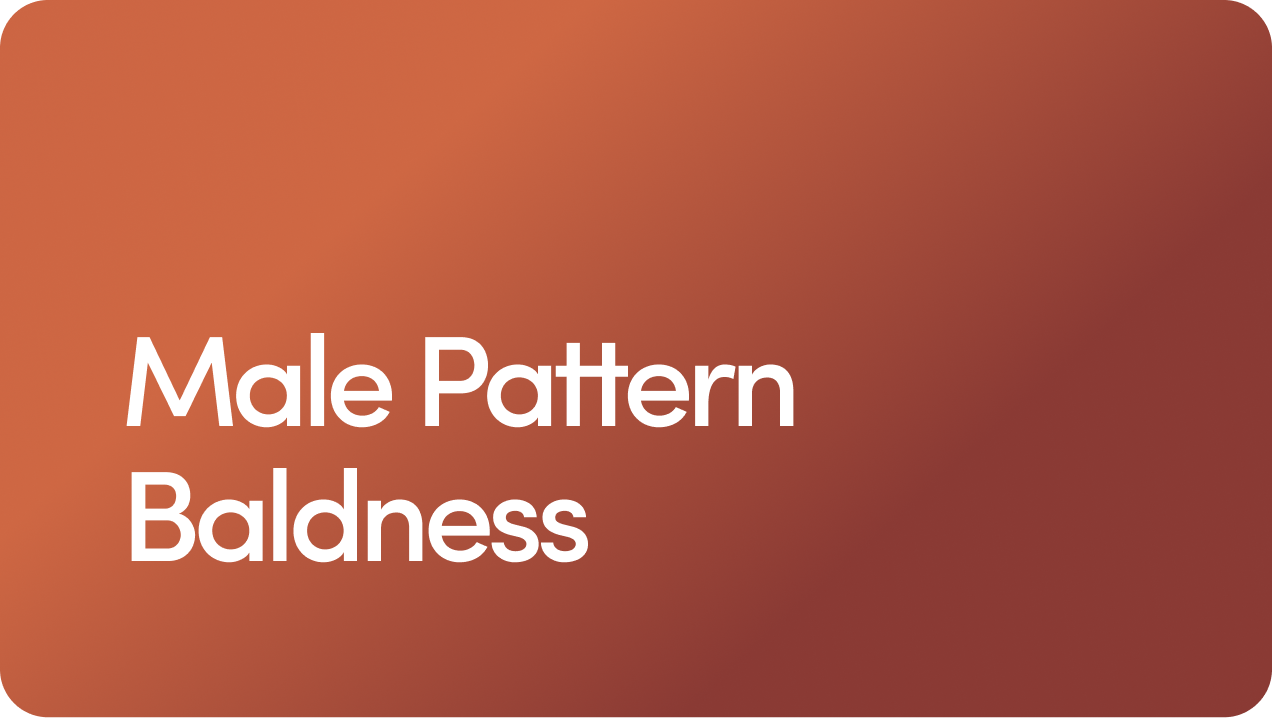Content
FDA approved for more than 25 years
Do Energy Drinks Cause Hair Loss? Here’s What To Know

Caffeine-filled beverages might give you a boost on mornings when you’re feeling sluggish, but could they be why you’re losing hair? Do energy drinks cause hair loss?
Male pattern baldness (AKA androgenetic alopecia) is the most common form of hair loss in men, and it typically results from a genetic sensitivity to the male sex hormone dihydrotestosterone (DHT). But lifestyle factors can also influence the progression and severity of hair loss.
Below, we cover the link between hair loss and energy drinks, plus how to treat hair loss if you suspect energy drinks are a factor in your thinning hair.
Content
You probably know that energy drinks can cause stomach issues or a racing heart, especially if you overdo it. But do the side effects of energy drinks cause hair loss?
Caffeine doesn’t typically cause hair loss, but it can affect your health in other ways.
If you drink one energy drink to stay up on a long road trip, you’re not going to start losing hair immediately. However, energy drinks may still play an indirect role in hair loss. Here’s why.
Energy Drinks Have a High Sugar Content
It’s not unusual for an energy drink to contain more than 50 or 60 grams of sugar per can. For context, 50 grams of sugar is 12 teaspoons — a regular-sized Snickers bar contains 20 grams of sugar.
According to The American Heart Association, men should consume no more than 36 grams of added sugar per day.
Sugary drinks often contain more than your daily recommended amount of sugar, and research shows a link between sweetened drinks and an increased risk of hair loss.
A recent study looked at the relationship between sugar-sweetened beverage consumption and male pattern hair loss in young men. The study examined 1,951 Chinese men aged 18 to 45 and found an association between high consumption of sugary beverages and an increased risk of male pattern baldness.
Too Much Caffeine Can Influence Stress Levels
Familiar with the unpleasant jittery and anxious feeling that comes with ingesting too much caffeine?
Evidence suggests that drinking caffeine regularly can increase cortisol levels. And some research shows an increased cortisol response when consuming caffeine in the afternoon.
High cortisol levels can potentially alter the hair growth cycle.
Other studies have found that energy drinks also increase catecholamine levels, which are “neurohormones” that play an important role in the body’s stress response.
What does this have to do with hair loss?
Chronic stress plays a role in telogen effluvium, a type of (usually temporary) hair loss that develops a few months after illness, injury, or a stressful event.
Learn more about how stress causes hair loss.
Caffeine Consumption Can Lead to Lack of Sleep
Drinking energy drinks with a high caffeine content can make it harder to fall and stay asleep, especially if you drink them close to bedtime.
A 2020 study on women experiencing female pattern hair loss found that poor sleep increased the rate of hair loss.
The researchers found that those with poorer sleep quality were more likely to experience more severe hair loss. However, the study also looked at factors like increased alcohol intake, hairstyle habits, and scalp oiliness, so it’s hard to say exactly how much poor sleep contributed.
Energy Drinks Might Impact Your Nutrition
Caffeine in energy drinks can suppress your appetite, leading you to eat less. This can impact your overall health by depriving you of essential nutrients necessary for healthy hair growth.
Learn more in our guide to vitamin deficiencies that can cause hair loss.
Are Energy Drinks Good for Hair?
Short answer: Energy drinks aren’t great for your hair. But we get why you might think otherwise.
Most energy drinks contain various B vitamins, like B6 and B12. And it’s true that some B-complex vitamin deficiencies can lead to hair loss. But the B-vitamins in energy drinks won’t save your hairline.
Then there’s taurine, a common energy drink ingredient that also occurs naturally in your body. Some research suggests that taurine helps prevent stress-related hair loss. But guess what? You can easily get taurine from milk, meat, and dairy products.
So while energy drinks might seem like they contain hair healthy ingredients, you’re better off looking elsewhere for hair benefits.
So, how do you address hair loss due to energy drinks? Here are some tips to consider:
Switch to sugar-free energy drinks, or get your caffeine from a cup of coffee or tea instead.
Limit your energy drink consumption to the morning hours to reduce your overall caffeine intake and promote better sleep.
Eat a balanced diet that includes a variety of whole grains, lean protein, fruits, and vegetables to make sure you’re getting the nutrients you need to support healthy hair growth.
Try research-backed hair loss treatments like topical minoxidil (Rogaine®) and oral finasteride (Propecia®).
Think your energy drink habit might be why you’re losing hair all of a sudden?
Let’s recap what we know about hair loss and energy drinks:
Your favorite beverage might cause hair loss, but it could be making it worse. Energy drinks may not directly cause hair loss, but they can increase stress and disrupt sleep and nutrition, affecting hair health.
You can adopt healthy lifestyle habits to help your hairline. Reducing your sugar intake and improving sleep can help counter potential hair-related effects from energy drinks.
You have effective hair loss treatment options to choose from. Minoxidil and finasteride are FDA-approved to treat male pattern baldness.
Unsure what’s behind your hair loss or if energy drinks are to blame? Book an appointment with a dermatologist or get started today with a free consultation through Hims. We can connect you with a hair care pro to help you find the best treatment option for your needs.
For more on lifestyle factors that affect hair loss, check out our guides to smoking and hair loss and marijuana and hair loss.
7 Sources
- Definition of catecholamine. (n.d.). https://www.cancer.gov/publications/dictionaries/cancer-terms/def/catecholamine
- How much sugar is too much? (n.d.). https://www.heart.org/en/healthy-living/healthy-eating/eat-smart/sugar/how-much-sugar-is-too-much
- Kim H, et al. (2013). Simulative evaluation of taurine against alopecia caused by stress in Caenorhabditis elegans. https://pubmed.ncbi.nlm.nih.gov/23392889/
- Papakonstantinou E, et al. (2016). Acute effects of coffee consumption on self-reported gastrointestinal symptoms, blood pressure and stress indices in healthy individuals. https://nutritionj.biomedcentral.com/articles/10.1186/s12937-016-0146-0
- Shi X, et al. (2023). The association between sugar-sweetened beverages and male pattern hair loss in young men. https://pmc.ncbi.nlm.nih.gov/articles/PMC9824121/
- Thom E. (2016). Stress and the hair growth cycle: Cortisol-induced hair growth disruption. https://jddonline.com/articles/stress-and-the-hair-growth-cycle-cortisol-induced-hair-growth-disruption-S1545961616P1001X/?_page=3
- Yi Y, et al. (2020). Effect of behavioral factors on severity of female pattern hair loss: An ordinal logistic regression analysis. https://pmc.ncbi.nlm.nih.gov/articles/PMC7359394/
Editorial Standards
Hims & Hers has strict sourcing guidelines to ensure our content is accurate and current. We rely on peer-reviewed studies, academic research institutions, and medical associations. We strive to use primary sources and refrain from using tertiary references. See a mistake? Let us know at [email protected]!
This article is for informational purposes only and does not constitute medical advice. The information contained herein is not a substitute for and should never be relied upon for professional medical advice. Always talk to your doctor about the risks and benefits of any treatment. Learn more about our editorial standards here.
Knox Beasley, MD
Education
Bachelor of Science, Life Sciences. United States Military Academy.
Doctor of Medicine. Tulane University School of Medicine
Training
Dermatology Residency. San Antonio Uniformed Services Health Education Consortium
Certifications
Board Certified. American Board of Dermatology
Medical Licenses
Dr. Beasley is licensed in all 50 states
Affiliations & Memberships
Fellow, American Academy of Dermatology
Specialties & Areas of Focus
Hair Loss, Dermatology
Years of Experience
10 years of clinical practice as a Dermatologist
Previous Work Experience
Medical Director - YouHealth Medical Groups, 2025–
Private practice, 2024–
Chief of Dermatology - , 2015–2019
Publications
Wilson, L. M., Beasley, K. J., Sorrells, T. C., & Johnson, V. V. (2017). Congenital neurocristic cutaneous hamartoma with poliosis: A case report. Journal of cutaneous pathology, 44(11), 974–977.
Banta, J., Beasley, K., Kobayashi, T., & Rohena, L. (2016). Encephalocraniocutaneous lipomatosis (Haberland syndrome): A mild case with bilateral cutaneous and ocular involvement. JAAD case reports, 2(2), 150–152.
Patterson, A. T., Beasley, K. J., & Kobayashi, T. T. (2016). Fibroelastolytic papulosis: histopathologic confirmation of disease spectrum variants in a single case. Journal of cutaneous pathology, 43(2), 142–147.
Beasley, K., Panach, K., & Dominguez, A. R. (2016). Disseminated Candida tropicalis presenting with Ecthyma-Gangrenosum-like Lesions. Dermatology online journal, 22(1), 13030/qt7vg4n68j.
Kimes, K., Beasley, K., & Dalton, S. R. (2015). Eruptive milia and comedones during treatment with dovitinib. Dermatology online journal, 21(9), 13030/qt8kw141mb.
Miladi, A., Thomas, B. C., Beasley, K., & Meyerle, J. (2015). Angioimmunoblastic t-cell lymphoma presenting as purpura fulminans. Cutis, 95(2), 113–115.
Beasley K, Dai JM, Brown P, Lenz B, Hivnor CM. (2013). Ablative Fractional Versus Nonablative Fractional Lasers – Where Are We and How Do We Compare Differing Products?. Curr Dermatol Rep, 2, 135–143.
Siami P, Beasley K, Woolen S, Zahn J. (2012). A retrospective study evaluating the efficacy and tolerability of intra-abdominal once-yearly histrelin acetate subcutaneous implant in patients with advanced prostate cancer. UroToday Int J, June 5(3), art 26.
Siami P, Beasley K. (2012). Dutasteride with As-Needed Tamsulosin in Men at Risk of Benign Prostate Hypertrophy Progression. UroToday Int J, Feb 5(1), art 93. https://www.urotoday.com/volume-5-2012/vol-5-issue-1/48691-dutasteride-with-as-needed-tamsulosin-in-men-at-risk-of-benign-prostatic-hypertrophy-progression.html
Why I Practice Medicine
Dr. Beasley began doing telemedicine while serving in the U.S. Army, providing dermatologic care for soldiers stationed around the world. This experience sparked his passion for telemedicine and inspired his commitment to expanding access to healthcare for patients across the United States.
Hobbies & Interests
In his free time, Dr. Beasley enjoys cooking, reading, and trips to the beach with his wife and two kids (with sunscreen of course).
Related Articles
Related Conditions
 Hair Loss
Hair Loss
 Male Pattern Baldness
Male Pattern Baldness
 Dandruff
Dandruff
 Scarring Alopecia
Scarring Alopecia
 Seborrheic Dermatitis
Seborrheic Dermatitis
